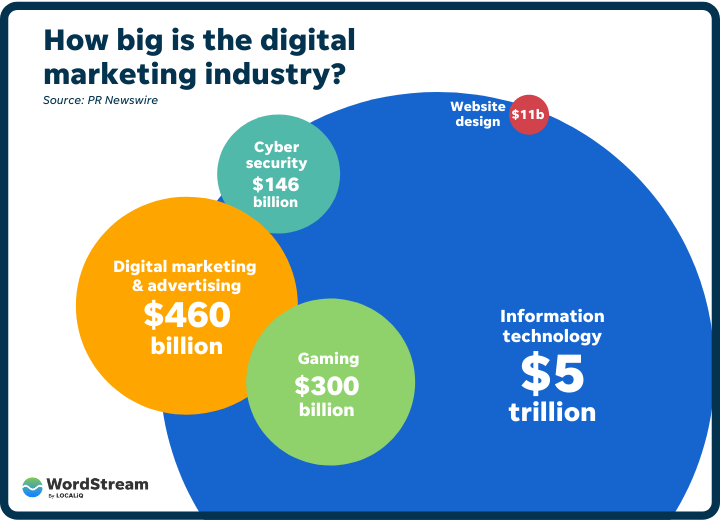Marketing is everywhere we look, from billboards on the highway to sponsored posts on our social media feeds. But how exactly does marketing influence our behavior as consumers?
The summary:
Marketing has a significant impact on consumer behavior, as it can influence how people perceive and make decisions about products and services. By using various techniques such as advertising, branding, and social media, marketers can create a sense of desire and urgency in consumers, leading them to make purchases they may not have otherwise made. Additionally, marketing can shape consumer attitudes and beliefs about certain products or brands, which can have long-term effects on their buying habits.
In this guide, we’ll explore the various tactics used by marketers to shape our decisions, and how we can become more aware of these influences.
💡 Helpful Statistics About Marketing:
● 82% of companies report using content marketing.
● On average, email marketing has a 4400% ROI. (OptinMonster)
● 76% of content marketers use organic traffic as a key metric for measuring content success. Only 22% use backlinks.
.
● 78% of salespeople using social media perform better than their peers. (Screwpile Communications)
● 98% of sales reps with 5000+ LinkedIn connections meet or surpass sales quotas. (The Sales Benchmark Index)
● There are 1.5 billion social media users across the globe. (McKinsey and Company)
● The purpose of content marketing is to create and share relevant information to attract and engage a target audience that’s interested in
your product or service.
● Blogs with educational content get 52% more organic traffic than blogs with company-focused content.

Table of Contents
Understanding the basics of consumer behavior.
Consumer behavior refers to the actions and decisions made by individuals when purchasing goods or services. It involves a complex interplay of psychological, social, and cultural factors that influence our choices. Understanding consumer behavior is crucial for marketers, as it allows them to create effective campaigns that resonate with their target audience. Factors such as motivation, perception, and attitudes all play a role in shaping consumer behavior.
The impact of advertising on consumer behavior.
Advertising is one of the most powerful tools marketers have to shape consumer behavior. By creating compelling ads that appeal to our emotions and desires, advertisers can influence our purchasing decisions. For example, a well-crafted ad can make us feel like we need a certain product, even if we didn’t think we did before. Advertising can also create brand awareness and loyalty, which can lead to repeat purchases and positive word-of-mouth recommendations. However, it’s important to note that advertising can also have negative effects, such as promoting unrealistic beauty standards or perpetuating harmful stereotypes.
The role of social media in shaping consumer behavior.
Social media has become a powerful tool for marketers to shape consumer behavior. By creating engaging content and building a strong social media presence, brands can connect with their target audience and influence their purchasing decisions. Social media platforms also offer targeted advertising options, allowing marketers to reach specific demographics and interests. Additionally, social media influencers have become a popular way for brands to promote their products and services, as their followers trust their recommendations and opinions. However, it’s important for marketers to be transparent about sponsored content and avoid misleading or deceptive practices.
The power of influencer marketing.
Influencer marketing has become a popular way for brands to promote their products and services through social media. By partnering with social media influencers who have a large following and strong engagement, brands can reach a wider audience and build trust with potential customers. Influencers can create sponsored content that showcases the brand’s products or services in a natural and authentic way, making it more appealing to their followers. However, it’s important for brands to choose influencers who align with their values and target audience, and to ensure that sponsored content is clearly labeled as such to avoid any ethical concerns.
The importance of brand identity and reputation.
A brand’s identity and reputation play a crucial role in shaping consumer behavior. Consumers are more likely to purchase products or services from a brand they trust and perceive as reputable. This is why it’s important for brands to establish a strong brand identity and maintain a positive reputation through consistent messaging, high-quality products or services, and ethical business practices. Marketing can help reinforce a brand’s identity and reputation through targeted messaging and advertising campaigns that highlight the brand’s unique value proposition and positive attributes.
Conclusion
Marketing has a significant impact on consumer behavior, as it can influence how people perceive and make decisions about products and services. By using various techniques such as advertising, branding, and social media, marketers can create a sense of desire and urgency in consumers, leading them to make purchases they may not have otherwise made. Additionally, marketing can shape consumer attitudes and beliefs about certain products or brands, which can have long-term effects on their buying habits.

